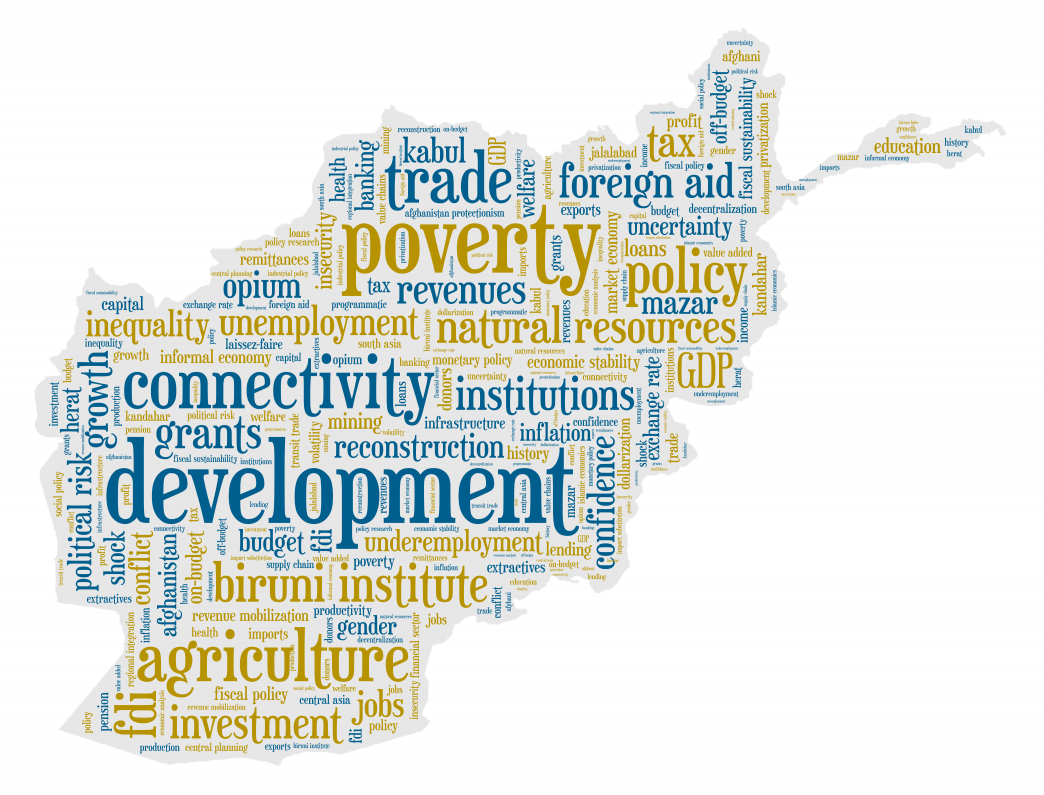WHO WE ARE
The Biruni Institute is an independent, non-partisan, and not-for-profit economic policy think-tank that aims to promote evidence-based and research-led policy making in Afghanistan, and help create an environment for open dialogue on key policy issues.
We apply state-of-the-art analytical tools and empirical methods, contextualized to local setting, to deliver solutions that address major issues confronting the economy.
The Institute strives to make meaningful contributions to the national debate on contemporary economic challenges in Afghanistan, and endeavors to institutionalize a scientific approach to policy design and economic thinking in the country.
The Institute is named after Abū Rayhān al-Bīrūnī, a prominent scholar from Khorasan, who lived and died in 1050 in modern-day Ghazni, Afghanistan. Biruni is regarded as one of the greatest polymath scholars of the medieval era, with profound original contributions in various disciplines. By virtue of his approach and methods in scientific inquiry, he is appraised as the champion of the scientific spirit – in the strict and modern sense of the term.

NEEDS ASSESSMENT
The role of the civil society is to engage in a constructive dialogue with the Government on policy issues, transmit the public’s concerns and suggestions to the Government, and challenge any policy measures that is not in the best interest of the society. On the other hand, the civil society also bears the responsibility to raise public awareness on promising policy programs so that people can better appreciate the Government’s initiatives and efforts.
These two facets of the civil society’s role will help emerge a feedback mechanism between the people and the Government from the bottom to the top, ensure that public voice is present in key policy decisions, put pressure on the Government for accountability and transparency, and finally help build social cohesion and public confidence when promising initiatives and reforms are undertaken by the Government.
In democratic societies, “think tanks” are one major form of civil society organizations which operate alongside the media and other organizations to play such important role.
In Afghanistan, however, such active think tanks focused on economic policy and development issues are currently missing. A few think tanks that exist are either too narrowly focused on few activities with limited outreach and scope, or are operating very similar to consultancy firms and do not fully exercise their function as civil society organizations.
Further, the economic literacy of not only the wider public but also the local media in Afghanistan is extremely low. As a result, not only adverse policy measures, unfeasible initiatives, and costly development programs are not properly critiqued in the society, but also few promising policy programs of the Government are not appreciated by the people in the way they should be.
The Biruni Institute is established to fill this gap. It endeavors to emerge as a leading think tank on economic policy and development in Afghanistan. It aspires to fulfill the functions of an effective think tank operating in the domains of public policy and economic development.
BRINGING NEW PERSPECTIVE…
The space for a non-government entity to provide a platform for collaboration between the Government, donors, academia, experts, and civil society actors around development and economic discourse has visibly been vacant in Afghanistan. The philosophy behind the establishment of the Institute has been a willingness to respond to this need.
Since 2001, the international donor community had to rely on the analysis, views, and evidence presented solely by the Government of Afghanistan. Enriching the quality of engagement, the Biruni Institute – as an Afghan-led, specialized research organization on development and economic thinking – brings to the table new perspectives and solutions tailored to local circumstances. This will be critical in shaping sound and credible policies in a country so much in need of better planning, programming, coordination, accountability, transparency, and effectiveness for result.
The team at the Biruni Institute believes that a research organization led by native experts and independent from the Government can better study, evaluate, critique and promote economic and development policies in the country which can benefit not only the Government but also the wider public.
Over the past eighteen years, the Government of Afghanistan along with its international partners were considered as the sole vender of the development agenda. Policies and reforms were prescribed by international experts, and in most instances without the knowledge of local context. Research activities were championed by foreign experts and institutions.
Moving forward, the Institute seeks to localize the policy dialogue and research, and bring in native perspectives to the table. Partnering with the Government and the donor community, the Biruni Institute encourages dialogue and civil society participation in the policy-making process, and seeks to create an environment for critical thinking, shaping the public opinion, and presenting innovative policies and research for greater prosperity of the country.

